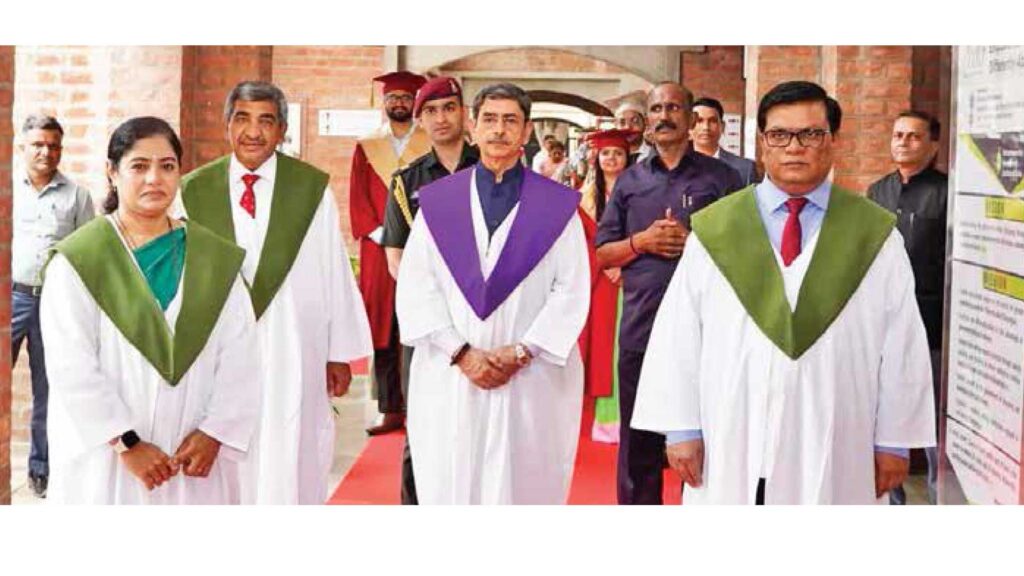A Visionary Crusader
Milind Kamble, Founder-director, Dalit Indian Chamber of Commerce and Industries (DICCI) could well be the champion of budding entrepreneurs or a patron saint of the underrepresented and marginalized, discovers Mahesh Dharmadhikari
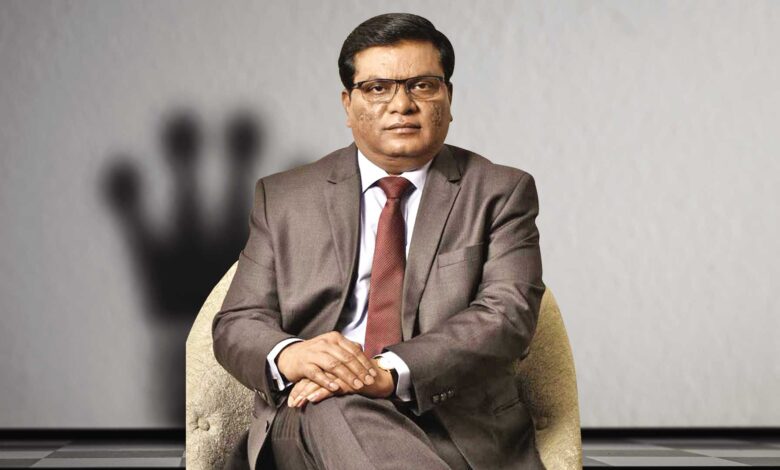
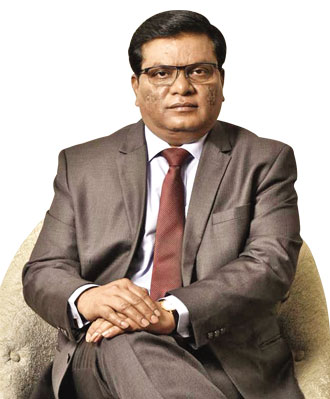
A civil engineer from Nanded could have got a fairly good job in the government sector; made his career with a complementing pay package and lived his life happily. Instead, Milind Kamble,
founder-director, DICCI (Dalit Indian Chamber of Commerce and Industries), had other plans for Lady Fate. While most young men his age, upon graduation, were following a tried and tested trajectory of procuring a good job in the PWD or Irrigation department through reservation, Milind decided to embark on a road less travelled. He decided to pitch his education against his vision of a different tomorrow. Naturally, his parents and other family members were upset with his choices but he remained steadfast in his decision. Milind, while taking off on his uncharted course decided to drop a pin on Pune and chose to relocate to the Peshwa City where he kick-started his career in the private sector.
Over the next two years, he paid the piper his dues in the private firm while he continued to march to his own drumbeat.
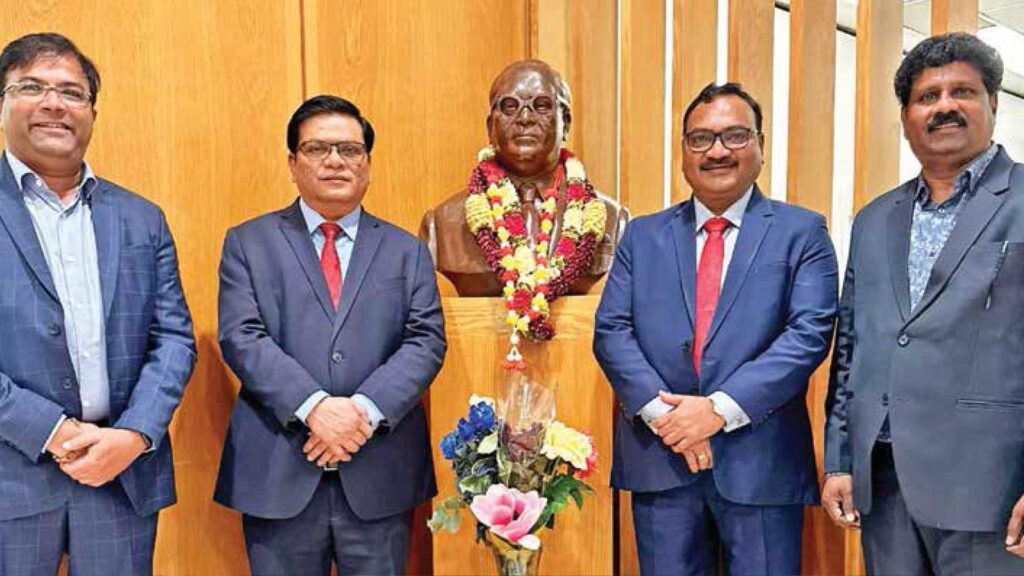
Circa 1993, he once again took another leap of faith. This time, armed with his inimitable belief in self and lessons learnt in the private sector, he jumped off the cliff to start his own enterprise under the aegis of Milind Kamble Civil Engineers and Contractors. This would be the first chapter of his indelible legacy. The second would be penned when he established a succession of companies, including Fortune Construction Company, MPK Enterprises Pvt. Ltd. and Superb Housing and Infrastructure Pvt. Ltd.
In the last three decades, Milind worked on a plethora of prestigious projects. He started his business career with Konkan Railway project. Then he worked on Mumbai-Pune Expressway and Krishna Valley Projects. He was a contractor of Indian Railways. He has worked with organizations such as Maharashtra Jeevan Pradhikaran, Pune Municipal Corporation (PMC), Pimpri Chinchwad Municipal Corporation (PCMC) and many BOT projects for the government of Maharashtra. His entrepreneurial journey of three decades, garnered Milind a rich and varied experience of working with different departments of the central and state governments as well as the local bodies.
Wise men have espoused that it is not the destination but the journey that matters Milind Kamble could not agree more! His journey has been a roller-coaster ride, replete with peaks and dips However, Milind is of the opinion that one cannot climb Mount Everest without encountering a few stumbles and tumbles along the way. During this adventure, he came across Dr. Babasaheb Ambedkar’s thoughts on economy. So inspired was Milind by the thoughts that he created a website in 2006 which was dedicated to the great economist of India, Dr. BR Ambedkar. The website was inaugurated by the erstwhile Prime Minister of India Atal Bihari Vajpayee.
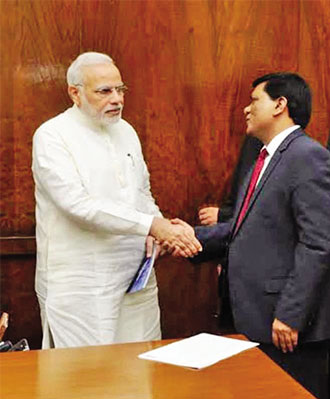
That is when people began inviting Milind to deliver lectures on Dr. Ambedkar’s thoughts on the economy and their relevance today. However, Milind being the overachiever that he is, felt that just delivering keynote addresses wasn’t enough. He believes that there are many people who talk ‘the talk’ in the Dalit community, but a very few walk the talk. Ergo Milind hit upon the idea to invite Dalit entrepreneurs to come together for the upliftment and economic empowerment of the community.
Milind had already witnessed different chambers of commerce and industries like CII, FICCI, MCCIA. These chambers work in the interest of their members. Also, he thought, the number of government jobs due to the reservation policy was steadfastly deteriorating. Though he acknowledged the fact the reservation provided an opportunity to take off, Milind knew that it wasn’t the only path to progress. Therefore, one needed to find alternatives to job creation. That is when Milind spoke with fellow entrepreneurs from the community about starting a similar chamber for the SC/ST entrepreneurs. Result? Thus, was born a new tomorrow in guise of the Dalit Indian Chamber of Commerce and Industries (DICCI).
Just as Milind was inspired by Dr. Babasaheb Ambedkar’s Economic Thoughts, he was also impressed by the civil rights movement spearheaded by the African American leaders such as Booker T. Washington and Dr. Martin Luther King. Just as Booker T Washington had empowered African Americans economically by starting the National Negro Business League (NNBL) in 1900. Milind started the DICCI in 2005.
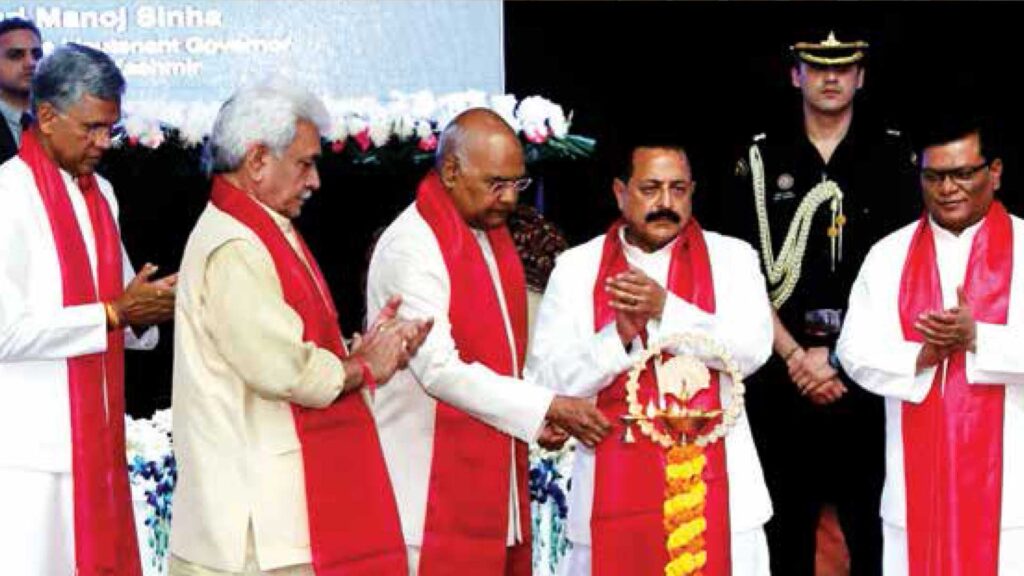
Initially, it was difficult to persuade the Dalit entrepreneurs to be the members of DICCI because they thought if they declared themselves as the members of DICCI, their identity as a community member would be revealed and people would not do business with them. It took five long years to convince people for the membership. In 2010, DICCI organised an exhibition in Pune and people began to enroll themselves as members of the DICCI. The exhibition was attended by many business stalwarts.
Buoyed by the tremendous success, similar exhibitions were hosted in different cities of India.
Now, many Indian industries including the Tata Group have begun to work closely with the DICCI and more than 900 DICCI members are vendors and suppliers to the Tata Group.
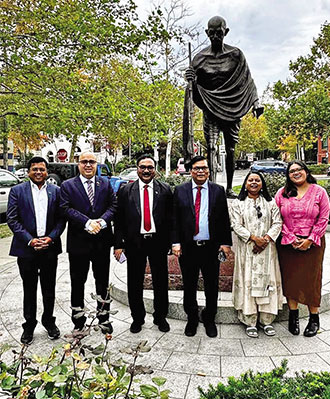
The state and the central governments also supported DICCI by making some policies for economic empowerment of SC/ST entrepreneurs. Today, the central government has made it mandatory for the government organizations to procure four percent of the goods from SC & ST entrepreneurs.
To empower its members, the DICCI has devised a 3M
Policy—Market (four percent procurement from SC/ST entrepreneurs), Money support (funding schemes like Mudra, Stand Up India, venture capital fund, ASIIM etc) and Mentoring—ecosystem where an entrepreneur can survive and prosper. DICCI has offices strewn across approximately 16 places in the country to mentor entrepreneurs). Several success stories within the community highlight the positive impact of DICCI in creating opportunities and breaking barriers for Dalit entrepreneurs in various sectors.
DICCI was recognised by the central government and the finance ministry in 2011 but for his phenomenal task, Milind Kamble was honoured with a Padma Shri—the fourth highest civilian award—in 2013. The recognition elevated the cause, drawing attention to the initiatives supporting Dalit entrepreneurs and fostering a more inclusive business environment. It also provided a platform to influence policies positively and garner increased support for the cause of empowerment within the Dalit community.
There have been many Dalit Vice Chancellors at myriad universities. However, there was no Dalit representation in institutions such as IIM. There was an amendment in the IIM Act in 2018 by the Modi government. As per this amendment, it was compulsory to choose at least one Board of Governors from the scheduled cast or scheduled tribes. These winds of change presented an opportunity to many scholars from the community. Milind Kamble is the Chairman of the Board of Governors at IIM Jammu, his key responsibilities include providing strategic guidance, fostering academic excellence, and ensuring effective governance. Milind has always been about enhancing the institute’s academic programs, promoting research initiatives, and fostering a holistic learning environment.
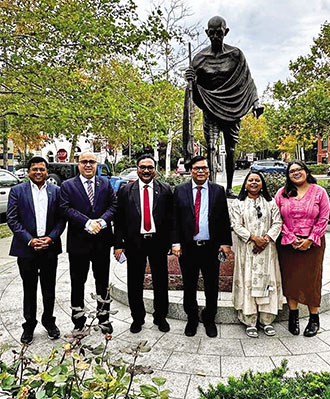
Milind plans to leverage his experience to shape policies that align with the industry needs, facilitate collaborations, and empower students to excel in their academic and professional pursuits. IIM Jammu was started in 2016-17—the last IIM to be started. Despite the geo-political challenges and the pandemic, IIM Jammu has achieved excellence in academics and built the excellent infrastructure under the baton of its first chairman Milind Kamble.
As the head of many organizations, he must balance his time and responsibilities efficiently. He says, “Balancing multiple roles involves effective time management, prioritization, and delegation.
I prioritize tasks based on urgency and impact, utilize scheduling tools to organize commitments, and delegate responsibilities when necessary. Regular communication and collaboration with teams are key to staying informed and ensuring alignment across various roles. Additionally, maintaining a healthy work-life balance and periodically reassessing priorities help in managing the diverse responsibilities associated with different organizations and forums effectively.”
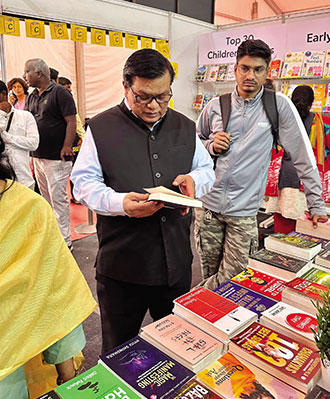
As for the future, Milind believes his “aspirations involve continuing to champion the cause of entrepreneurship, particularly for underrepresented communities. I plan on expanding initiatives that promote economic inclusion, skill development, and access to resources. By leveraging my position in various organizations and forums, I aim to advocate for policies that foster diversity and create opportunities for aspiring entrepreneurs from marginalized communities. Ultimately, my goal is to contribute to a more inclusive business landscape that empowers individuals, regardless of background, to thrive in the entrepreneurial sphere.”
Balancing multiple roles involves effective time management, prioritization, and delegation.
I prioritize tasks based on urgency and impact, utilize scheduling tools to organize commitments, and delegate responsibilities when necessary.”
“My aspirations involve continuing to champion the cause of entrepreneurship, particularly for underrepresented communities. I plan on expanding initiatives that promote economic inclusion, skill development, and access to resources.”
“By leveraging my position in various organizations and forums, I aim to advocate for policies that foster diversity and create opportunities for aspiring entrepreneurs from marginalized communities.”
